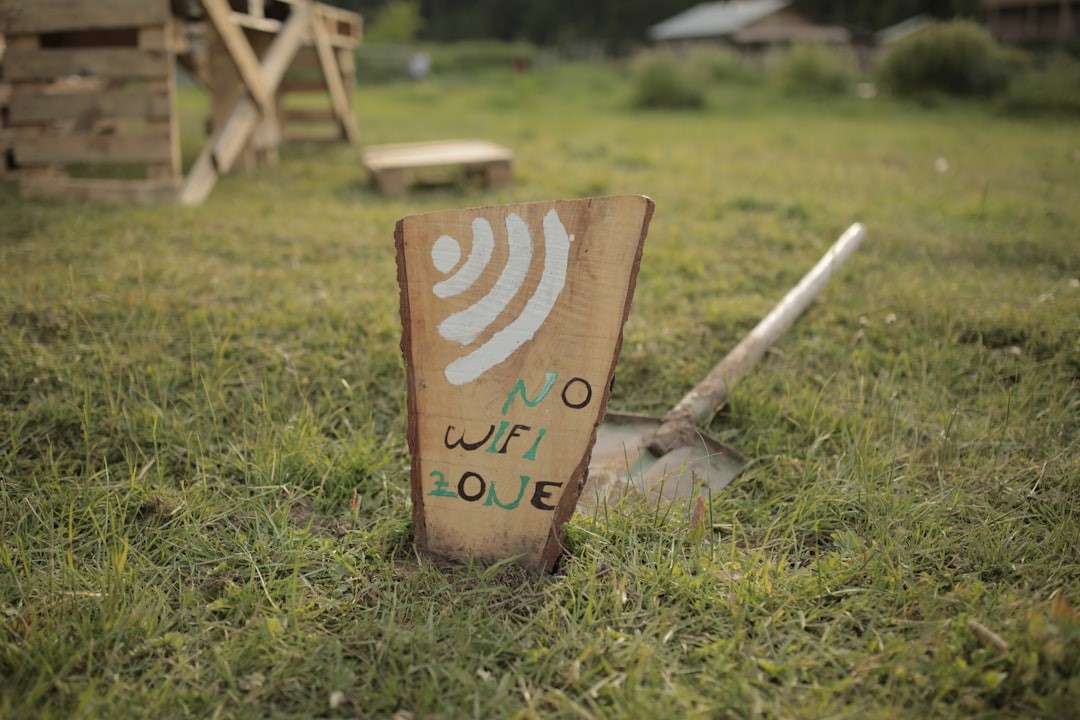Sustainable Business Internet: The Future of Eco-Friendly Connectivity
-
April 7, 2025
-
5 min read

As businesses increasingly prioritise environmental responsibility, the demand for sustainable business internet services is on the rise. Providers are stepping up to the challenge, offering eco-friendly connectivity options that reduce carbon footprints and promote a greener future. This article explores the key components of sustainable Internet services and highlights providers leading the way in this field.
Energy-Efficient Infrastructure: The Backbone of Sustainable Internet
At the heart of sustainable business internet lies energy-efficient infrastructure. Providers are investing heavily in technologies and practices that minimise energy consumption without compromising performance:
- Renewable Energy Sources: Data centres powered by solar, wind or hydroelectric power significantly reduce carbon emissions. Google Fiber, for instance, is committed to using 100% renewable energy for its operations.
- Energy-Efficient Hardware: Deploying servers, cooling systems, and other equipment designed for optimal energy efficiency. Cisco emphasises AI-enabled energy management and lifecycle optimisation to reduce resource use.
- Virtualisation and Cloud Computing: Consolidating servers and using shared resources to minimise energy consumption and lower carbon emissions.
Fiber Internet: A Sustainable Connectivity Solution
Dedicated internet leased line emerges as a highly sustainable option for businesses due to its:
- Energy Efficiency: Fiber-optic cables consume significantly less energy than copper cables, making them the most energy-efficient form of broadband internet.
- Durability and Longevity: Fiber cables are resistant to environmental factors and can last decades. This reduces the need for frequent replacements and associated e-waste.
- Reduced Material Usage: Made from abundant silicon dioxide, fiber cables require fewer materials in production than copper cables, reducing environmental and health risks.
Here is a comparison table between fiber internet and traditional copper cables:
| Feature | Fiber Internet | Traditional Copper Cables |
| Energy Efficiency | High (lower energy consumption) | Low (higher energy consumption) |
| Durability | High (resistant to environmental factors) | Low (prone to damage and degradation) |
| Material Usage | Low (made from abundant silicon dioxide) | High (requires more materials) |
| Environmental Impact | Low (reduced carbon footprint) | High (higher carbon emissions) |
Eco-Friendly Internet Plans: Empowering Sustainable Choices
Several ISPs now offer eco-friendly internet plans that incorporate sustainability initiatives:
- Renewable Energy and Carbon Offset Programs: Providers use renewable energy to power their networks and invest in carbon offset projects to reduce environmental impact.
- Energy-Efficient Modems and Paperless Billing: Providers offer energy-efficient modems and promote paperless billing to minimise their ecological footprint.
- Environmental Certifications and Partnerships: Providers obtain certifications and partner with conservation organisations to validate their commitment to sustainability.
Airtel integrates renewable energy in its operations, optimises data centre efficiency, and promotes sustainable network expansion to reduce carbon emissions.
Economic and Operational Benefits of Sustainable Internet
Adopting sustainable business internet services benefits the environment and offers economic and operational advantages for companies.
- Cost Savings: Energy-efficient solutions can significantly reduce operational costs (OpEx) and capital expenditure (CapEx). Cisco’s AI/ML capabilities simplify maintenance, reduce truck rolls, and help monitor energy consumption, cutting costs.
- Enhanced Brand Perception: 84% of customers say poor environmental practices will alienate them from a brand. Adopting sustainable internet services can improve a company’s reputation and align it with environmentally conscious consumers.
- Regulatory Compliance: Businesses adopting sustainable internet practices can stay ahead of evolving environmental regulations, avoiding potential fines and legal challenges.
- Increased Employee Satisfaction: Companies committed to sustainability attract and retain talent, as employees increasingly prefer working for environmentally responsible organisations.
Regulatory Pressures and Corporate Demands
Internet service providers (ISPs) must navigate evolving regulations and corporate expectations to maintain compliance and sustainability.
- Compliance with Sustainability Standards: ISPs face increasing pressure to comply with sustainability standards and regulatory demands. Cisco supports providers in managing energy costs and greenhouse gas emissions in alignment with corporate and regulatory requirements.
- Evolving Business Models: Providers are shifting from linear to circular business models with programs designed to reduce environmental impact, such as equipment takeback and reuse initiatives.
- Mandatory Emission Reductions: Governments worldwide are setting stricter carbon reduction targets, requiring ISPs to adopt greener technologies and report on their sustainability progress.
- Corporate ESG Commitments: Businesses demand that ISPs align with their environmental, social, and governance (ESG) goals, pushing providers to enhance transparency and adopt sustainable practices.
Airtel AOI (Office Internet): A Step Towards Sustainable Connectivity
Airtel AOI’s sustainability service aligns with broader industry trends:
- Energy Efficiency: As a major telecom operator, Airtel is likely to invest in energy-efficient technologies and renewable energy sources to reduce its carbon footprint.
- Network Modernisation: Airtel’s ongoing network infrastructure modernisation could involve adopting sustainable technologies like fibre internet. This is more energy-efficient and durable than traditional copper cables.
- Corporate Social Responsibility: Bharti Airtel’s strong focus on corporate social responsibility, including sustainability initiatives, suggests that eco-friendly practices would be incorporated into its business internet services like AOI.
The Future of Sustainable Business Internet
As demand for eco-friendly services grows, the future of sustainable business internet looks promising:
- Technological innovations like AI-enabled energy management and advanced fiber-optic technologies will continue to drive sustainability in the industry.
- Regulatory pressures will push ISPs towards more sustainable practices, making compliance with sustainability standards increasingly important.
- Businesses will prioritise sustainability in their operations, including their choice of internet service providers, to align with consumers’ eco-friendly values.
Conclusion
Sustainability in business internet services is a multifaceted issue involving energy-efficient infrastructure, renewable energy sources, and eco-friendly practices throughout the service lifecycle. Providers like Airtel, Cisco, and Google Fiber are pioneering sustainable business internet solutions that minimise environmental impact. These solutions promote sustainability and offer significant economic and operational benefits.
With the growing demand for sustainable services, more ISPs are expected to adopt eco-friendly practices. Airtel, with its AOI service, is already leading this shift, paving the way for a greener future in connectivity.
 Share
Share









